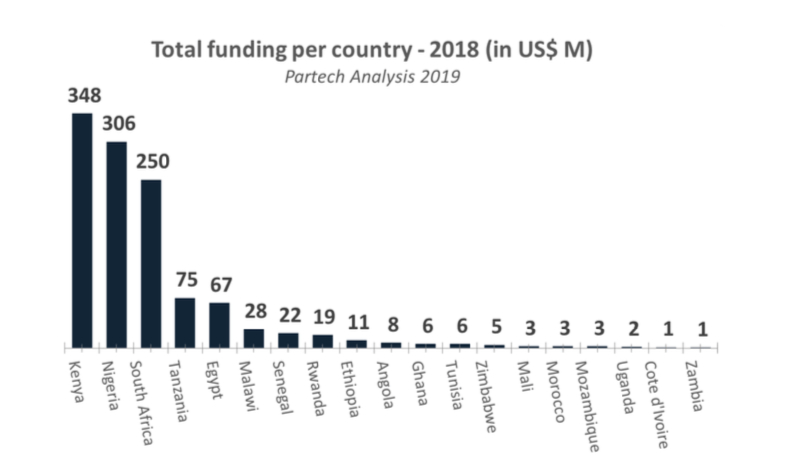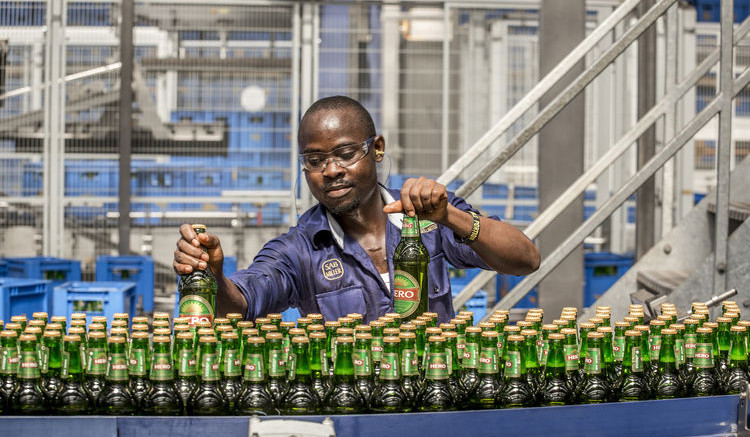NEW REPORT: Funds Raised By African Tech Startups in 2018 Surpass Some Countries GDP
Tech startups in Africa are having a field day. In fact, the amount raised through funding, by tech startups in Africa is two and a half times larger than the GDP of Sao Tome and Principe, an island nation off the coast of Central Africa.

The Afrobytes and Viva Tech conferences in Paris this week are providing an opportunity to analyse the growth of tech startups in Africa. Fund-raising is one of the key growth areas. Partech Africa, a venture capital firm, hinted that 146 startups in 19 African countries raised $1.16 billion for African digital entrepreneurs in 2018.

Key Analysis
- Kenya, Nigeria and South Africa in all saw a 78% of the total funding, with Egypt close behind.
- French speaking countries are not way behind:Senegal is the leading tech ecosystem among them with a total of $22 million raised in four deals so far.
- Forty Senegalese startups last November secured a total of $2 million in government funding alone.
- Side by side with their Anglophone peers, African Francophone countries, Partech noted, operate in smaller markets, and lack capital and mentors.
- With African population expected to reach 1.4 billion by 2021, and with over 1 billion smartphones on the continent, Africa looks like the a promising center for the world’s leading high-tech and telecom companies.

What Speakers At Both Conferences Said
Marieme Diop, a venture capital investor at Orange Digital Ventures, said that ‘unfortunately in Francophone Africa, it is not in our DNA. People who succeed in business or in electing positions do not necessarily reach back to help their peers to show them how to be successful. In the Anglophone world, it is a must for anyone who wants to start something: seeking advice. So the gap is not only financial’ between the regions. Africa is seen by many as the next frontier for venture capital, with its booming population and mobile-first economy. That’s why Google, Facebook and PayPal participated in Paris in Afrobytes 2019.’
We do not want people globally to see African high-tech as an exotic stuff,’ said Afrobytes CEO Ammin Youssouf. ‘We want to be heard and talk about AI, blockchain, what is happening in Silicon Valley, because it has an impact on us. We already have brilliant minds in Africa, especially in tech, to have those conversations.’Unlike the global trend, where men dominate the high-tech industry, women are leading the movement in Africa.’
Women Are Becoming A Large Part of the Tech Revolution
Ben White, chief executive officer of venture capital platform VC4Africa, who has been supporting startups on the continent for more than 10 years analysed this situation:
‘‘Actually, what we see in the statistics is that women’s involvement and participation on in the African continent is much higher than what you would find in New York, for example, or San Francisco. I think it is an advantage. It also means having women investors who are very sensitive to gender-related questions and can also ensure that the system we are building is inclusive.’’
Can Government Help Tech Startups By Way Of Funding?
Government in startups? That is a two-way risk:
Kenza Lahlou, co-founder and managing partner at Outlierz Ventures, said the public sector ‘should not invest [in startups].To him, governments simply don’t have the skills needed to pick good investments. However, government can bring support by way of legislation, and policy support.
Morocco, for instance, already has InnovInvest, which it is doing in partnership with the World Bank to invest in local venture capitalist funds, to lower the risk for local funds.
Charles Rapulu Udoh

Charles Rapulu Udoh, a Lagos-based Lawyer with special focus on Business Law, Intellectual Property Rights, Entertainment and Technology Law. He is also an award-winning writer. Working for notable organisations so far has exposed him to some of industry best practices in business, finance strategies, law, dispute resolution and data analytics both in Nigeria and across the world.








